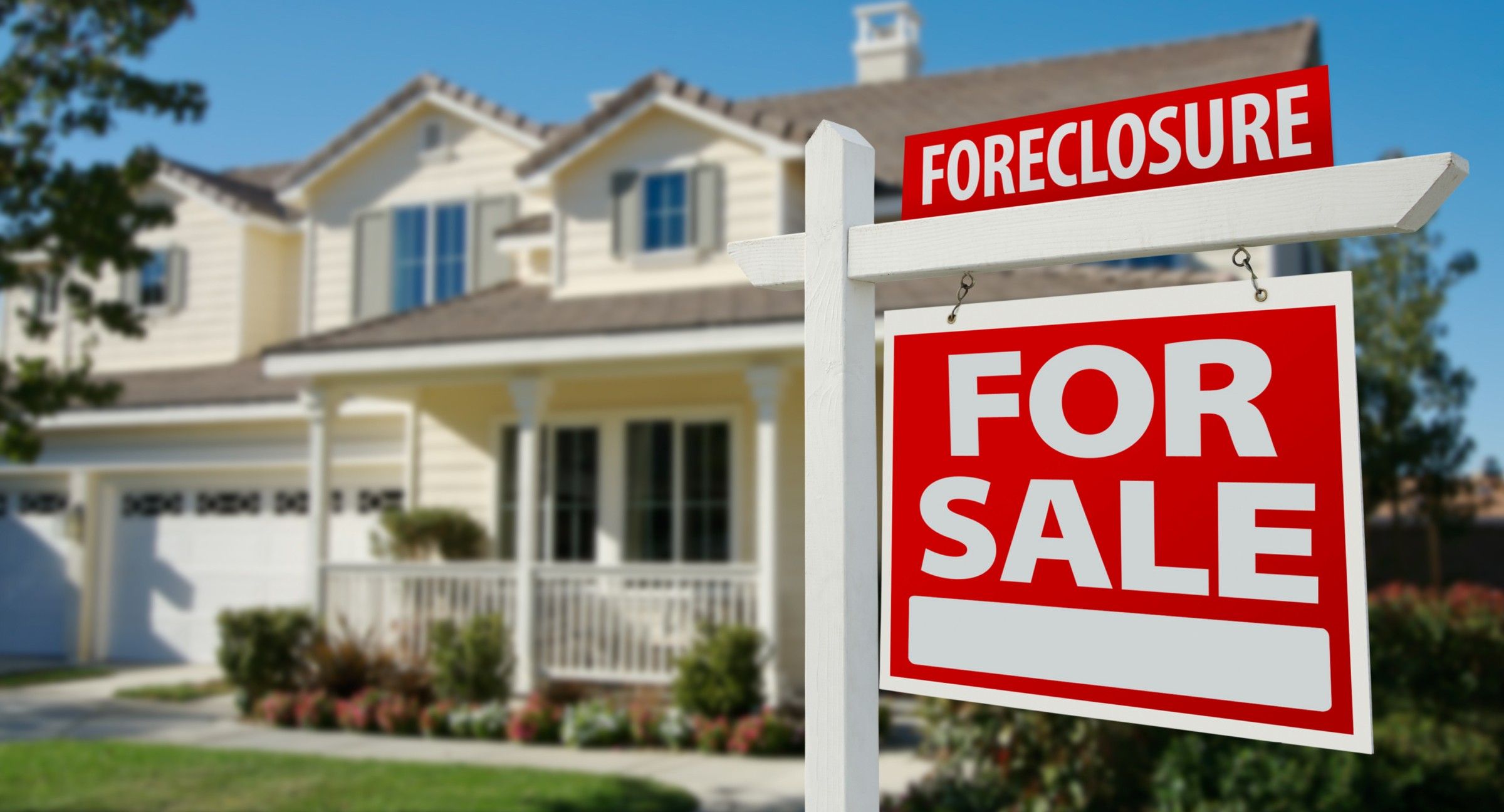
You may be wary of adding a foreclosed property to your list when shopping for a new home. However, if you’re a thrifty-minded shopper with risk-tolerance, vision, and basic handy skills, there are several reasons to consider foreclosures.
While not without drawbacks, foreclosed properties typically sell well below market value, allowing first-time homebuyers to nab a potentially fantastic home for a fraction of the price of a conventional home purchase. But what are foreclosures, how does the foreclosure process work, and how do you purchase a foreclosed property?
Here’s everything you need to know about buying a foreclosed home.
First Thing’s First: What Does “Foreclosure” Mean?
When homeowners take on a mortgage, they sign a lien, which allows the lender to reclaim the property if the buyer defaults on the loan—or, in other words, stop making mortgage payments. The process is slightly more complicated than that, but once the lender reclaims the property, it’s officially in foreclosure.
Where Do I Find Foreclosed Properties?
The real estate market may be uncertain, but it’s had a healthy run, meaning there are fewer foreclosures on the market. That said, you can still find foreclosed properties with a simple Google search.
The multiple listing service (MLS) is a great place to start because you can narrow your search by zip code and status to sort foreclosures from conventional listings. The web is crowded with foreclosure websites, but we especially like Fannie Mae’s HomePath site.
Types of Foreclosures
“Foreclosure” is a general term for properties that the lender has reclaimed. But as we mentioned above, “foreclosure” actually refers to the following:
- Pre-Foreclosures: Lenders must notify homeowners that they are in default before a home is given official "foreclosure" status. Next, the property is listed online and in county and city courthouse buildings.
- Short Sales: A short sale occurs when homeowners are willing to sell a home for less than they owe on the mortgage. Short sales happen far less frequently in a healthy market.
- Sheriff's Sale Auctions: Auctions occur after the expiration of a grace period in which the lendee cannot catch up on outstanding mortgage payments. Auctions typically happen at city courthouses, where properties are auctioned off to the highest bidder.
- Bank-Owned Properties: If a property does not sell at auction, the bank regains control of it. You can browse bank-owned properties here.
Why are Foreclosed Homes Cheaper?
Foreclosures are generally marked down for a few reasons. If the home has “pre-foreclosure” or “short-sale” status, the homeowners have less negotiating power because they are financially “underwater.”
And if the lender has seized the property, home shoppers have even more gain. Why? Because neither the sheriff's office nor the lender wants to be landlords. In short, they want to offload responsibility and costs onto you—and that works to your benefit.
Right Start Mortgage: Your Mortgage Experts Since 1989
Contact the expert mortgage advisors at Right Start Mortgage for more information. Whether you’re looking to buy or refinance your home, we’re here to help. Get started today! Request a free personalized rate quote.